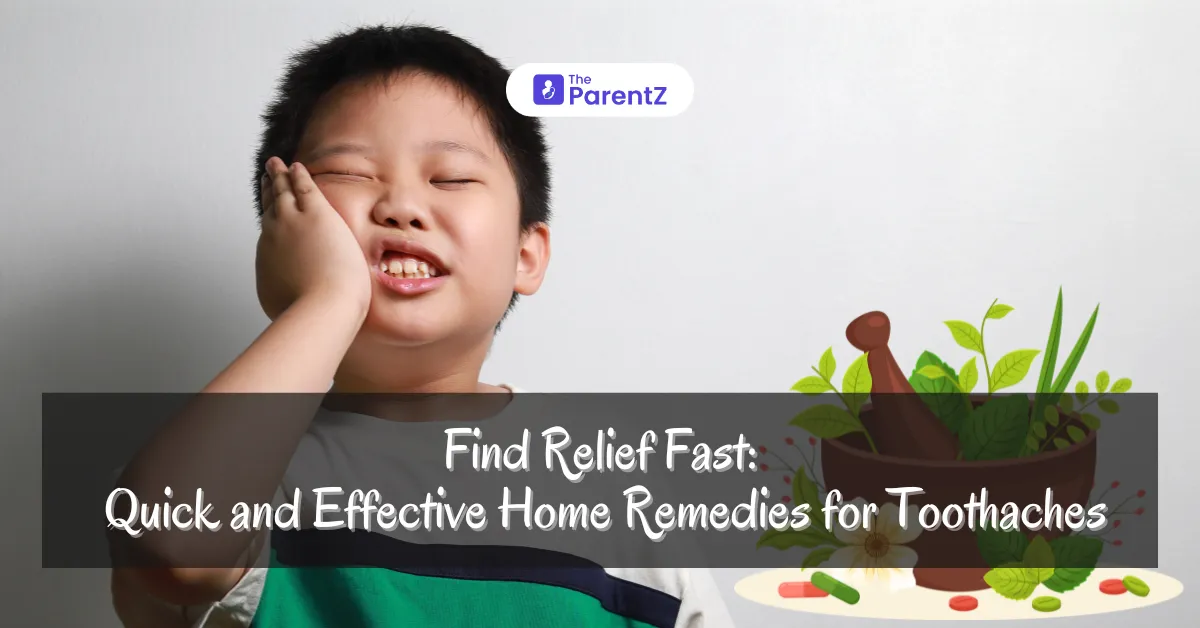Toothaches can strike unexpectedly, causing significant discomfort and disrupting daily life. While it’s essential to consult a dentist for persistent or severe tooth pain, several home remedies can provide temporary relief until professional care is available.
Understanding Toothaches: Types and Causes
Toothaches can vary in intensity and origin. Ignoring child's tooth ache can lead to emergency situation if not alarmed, check our guide /parenting/why-you-should-never-ignore-kid-s-dental-pain-a-guide-for-parents. Common types include:
• Sharp, Intermittent Pain: Often linked to tooth sensitivity, this pain may arise when consuming hot, cold, or sweet foods.
• Dull, Persistent Ache: Typically associated with tooth decay or nerve irritation.
• Throbbing Pain with Swelling: May indicate an abscess or severe infection requiring immediate attention.
• Pain When Chewing: Could suggest a cracked tooth, loose filling, or dental decay.
Quick and Effective Home Remedies
1. Saltwater Rinse: A natural disinfectant, saltwater can reduce inflammation and heal oral wounds. Mix half a teaspoon of salt in 8 ounces of warm water and swish in your mouth for 30 seconds before spitting out.
2. Cold Compress: Applying a cold pack to the affected area constricts blood vessels, reducing pain and swelling. Hold a towel-wrapped ice pack against your cheek for 20 minutes, repeating every few hours as needed.
3. Hydrogen Peroxide Rinse: This solution helps kill bacteria, decrease plaque, and soothe bleeding gums. Combine equal parts 3% hydrogen peroxide and water, swish in your mouth for 30 seconds, then spit out and rinse thoroughly with water.
4. Clove Oil: Known for its analgesic and antibacterial properties, clove oil can numb pain and reduce inflammation. Dilute a few drops with a carrier oil and apply to the affected area using a cotton ball. Want to know more about clove oil? /health-nutrition/clove-oil-and-its-dental-benefits-for-children-a-natural-remedy-for-oral-health
5. Garlic: Garlic’s natural antibacterial properties can alleviate tooth pain. Crush a garlic clove to create a paste, apply it to the affected area, or chew a raw clove gently.
6. Peppermint Tea Bags: Used tea bags can soothe sensitive gums and numb pain. After steeping a peppermint tea bag, let it cool slightly and apply it to the affected area.
7. Over-the-Counter Pain Relievers: Non-prescription medications like ibuprofen or acetaminophen can help manage toothache pain. Always follow dosing instructions and consult with a healthcare professional if unsure.
When to Seek Emergency Dental Care
While home remedies can provide temporary relief, certain situations require immediate professional attention:
• Severe, Unrelenting Pain: Intense pain that doesn’t subside may indicate a serious issue like an abscess or significant infection.
• Swelling of the Face or Jaw: Swelling can signal an infection that could spread, necessitating prompt treatment.
• Fever or Chills: These symptoms, combined with tooth pain, may suggest a spreading infection requiring urgent care.
• Difficulty Breathing or Swallowing: This could indicate a severe infection affecting the airway, demanding immediate medical attention.
• Persistent Bleeding: Uncontrolled bleeding after a dental injury needs prompt evaluation.
Note for Parents: Managing Children’s Toothaches
Children may struggle to articulate dental pain, so parental vigilance is crucial.
• Monitor Symptoms: Look for signs like increased irritability, refusal to eat, or swelling around the jaw.
• Use Child-Friendly Remedies: A gentle saltwater rinse or a cold compress can provide relief.
• Avoid Topical Analgesics: Over-the-counter gels may not be suitable for young children and can cause adverse reactions.
• Consult a Pediatric Dentist: Seek professional advice promptly if the toothache persists or is accompanied by fever or swelling. While toddlers and teens can speak about their discomfort, infants can't, read our guide about managing teething pain in infants /health-nutrition/teething-pain-in-infants-remedies-and-facts-to-soothe-your-baby
Preventing Future Toothaches
Maintaining optimal oral hygiene is key to preventing toothaches:
• Regular Brushing and Flossing: Brush at least twice daily and floss once a day to remove plaque and food particles.
• Limit Sugary Foods and Drinks: Reduce consumption of sugary items that can contribute to tooth decay.
• Regular Dental Check-ups: Visit your dentist biannually for cleanings and examinations to detect potential issues early.
• Use Fluoride Toothpaste: Fluoride strengthens tooth enamel, making it more resistant to decay.
• Avoid Tobacco Products: Smoking or chewing tobacco can exacerbate dental problems and delay healing.
Conclusion
Toothaches can be distressing, but various home remedies offer temporary relief. Understanding the type of toothache and recognizing when it constitutes an emergency are crucial steps in addressing dental pain effectively. Parents should pay special attention to children’s dental health, ensuring prompt professional care when necessary. By maintaining good oral hygiene practices and seeking timely dental





Be the first one to comment on this story.